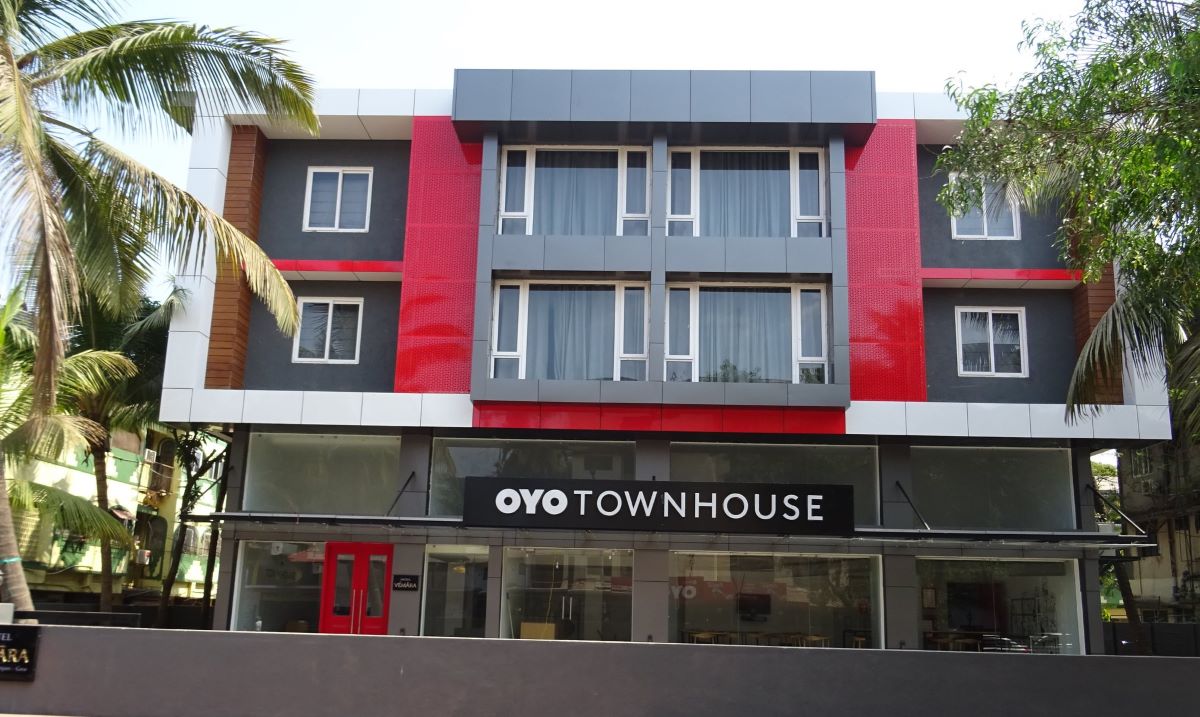India Daily: Fitch Upgrades Oyo Rating Citing Positive Cash Flow

Skift Take
Fitch Ratings has revised the outlook of Oravel Stays’ – the parent company of India-based Oyo Hotels and Homes – to "positive" from "stable." Fitch estimates that Oyo is on track to generate positive (EBITDA) — a measure of profit — and cash flow from operations. “The rating reflects its asset-light business model that benefits from minimal capex needs, largely exclusive distribution rights, pricing control over storefront inventory, fixed revenue share and strong long-term growth potential,” a statement from Fitch said. The ongoing demand recovery in the industry is expected to drive revenue growth of over 20 percent. Fitch expects the cost-reduction measures Oyo undertook in recent years to support its improving profitability. Meanwhile, Chinese hospitality company H World Group has sold 10 million equity shares, which translates to one-fifth of its holding of Oyo to United Arab Emirates-based family offices and institutional investors for around $9 million, a source told Skift. Earlier this month, rating agency Moody’s Investors Service also said it expected Oyo to generate between about $50 million and $55 million in EBITDA this fiscal year.
China has issued over 60,000 visas to Indians traveling to the country in the first five months of this year. “In the first five months of this year, the Chinese Embassy and Consulates General have issued over 60,000 visas to Indian people traveling to China for purposes of business, study, tourist, work, family reunion etc,” Chinese Embassy in India spokesperson Wang Xiaojian tweeted. Earlier in March, the embassy had issued a notification stating that Chinese visas issued before March 28, 2020 (pre-Covid times) and the remaining valid period would be reactivated. China had been closed to visitors for three years since the onset of the pandemic. The worst impacted were Indian students who returned when the pandemic began but weren’t issued visas for the longest time.
To avert congestion at airports amid rising passenger traffic, India’s aviation security regulator – the Bureau of Civil Aviation Security – has suggested that new flight operations at airports should be linked to their passenger handling capacities at security checkpoints. Airports are undertaking capacity assessment on the processing time, queuing time, passenger touchpoints and demand forecast. The move comes against the backdrop of congestion witnessed at Delhi airport late last year that had resulted in long wait times for passengers. Earlier this month, Civil Aviation Minister Jyotiraditya Scindia asked airline and airport operators to carry out a thorough internal analysis of their throughput and space requirements, among other factors, to ensure there is no clogging at any points.
The fourth G20 tourism working group meeting under India’s presidency will be held in the country’s coastal state Goa on June 19 and 20. The ministerial meeting is scheduled to be held on June 21 and 22 with tourism ministers from the G20 countries and other invited guests to discuss the outcomes of the previous working group meetings and adopt a joint declaration on tourism cooperation, said Sanjit Rodrigues, nodal officer for G20 meetings in the state. The latest G20 tourism meeting was held in Jammu and Kashmir’s Srinagar. Film tourism was a key highlight of the event that showcased film shoot offerings with a focus on single-window clearance and other facilities to foreign crews.
India’s aviation watchdog, the Directorate General of Civil Aviation, has put on hold requests from Go First’s lessors to repossess aircraft. According to a Reuters report, the regulator has not rejected the requests, but is waiting for bankruptcy process to play out, which could take at least six months. Go First was granted bankruptcy protection on May 10. Go First said it would raise salaries in an effort to retain workers during the insolvency proceedings that has forced the airline to temporarily suspend its operations since May 3.
New Delhi-based business-to-business travel tech startup TravClan has partnered with the government bodies and tourism boards of Abu Dhabi, Dubai, Oman and Saudi Arabia to reshape the way travel agents sell and deliver travel experiences worldwide. Through the partnerships, the platform aims to increase awareness among travel professionals regarding the vast choice of on-ground travel services and unique experiences these destinations have to offer. Expected to attract over 200,000 new consumers to the Middle East, these alliances stand to generate a potential 20 percent revenue growth in the next three years for over 15,000 travel agents who would get a chance to learn more about offerings of the region.
In line with its five-year transformation program Vihaan.AI, Tata Group-owned Air India has launched Gurukul.AI, designed to create personalized upskilling paths for employees. The platform integrates competency frameworks mapped to various roles within the organization. The learning hub aims to provide recommendations based on an individual's unique learning trajectory, and offer a comprehensive suite of over 70,000 advanced learning tools and interactive elements. Gurukul.AI will be launched in phases to cater to different departmental requirements, such as inflight services, ground services, and engineering.
The Maharashtra cabinet approved the implementation of the gender inclusive tourism policy called ‘Aai’ under the ‘Azadi Ka Amrit Mahotsav’ to celebrate 75 years of India’s independence. Additionally, approval was given to start women’s bike-taxi services at some tourist spots in the western state. The policy will be implemented through the Directorate of Tourism and Maharashtra Tourism Development Corporation in coordination with various schemes of all concerned departments. The five principles of women entrepreneurship development will be adopted: infrastructure for women; prioritizing the safety of women tourists; customized products for women tourists; discounts; and travel and tourism development. Various measures will be implemented to provide business and employment opportunities to women in the field of tourism and to enable women tourists to benefit from safe tourism.




